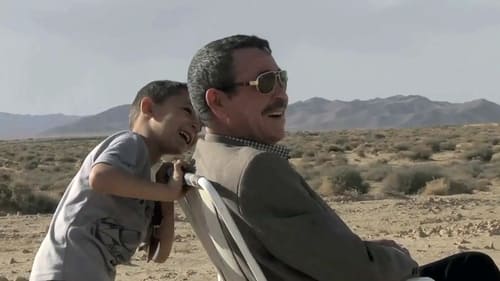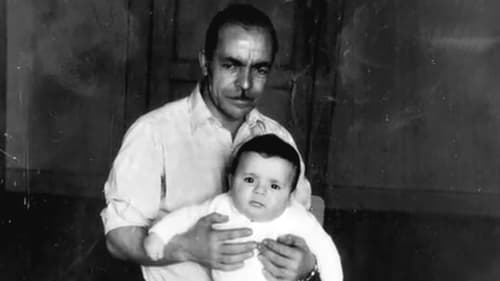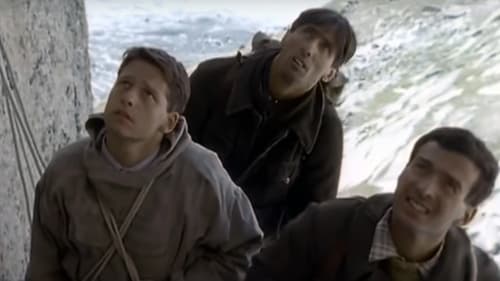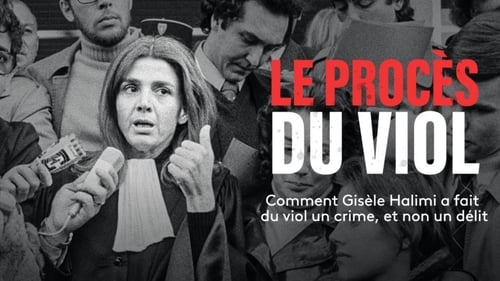Les oliviers de la justice (1962)
Gênero : Drama
Runtime : 1H 21M
Director : James Blue
Sinopse
The son of a French colonialist in Algeria returns to Algeria after learning that his father is ill. Memories from childhood return. He also must deal with some problems involving the Algerian fight for independence.
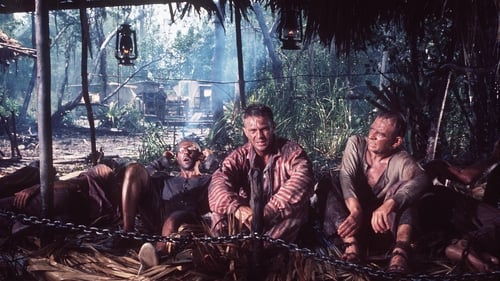
Na década de 1930, Papillon (Steve McQueen) foi acusado de assassinato e mandado para cumprir prisão perpétua na Guiana Francesa. As regras da prisão são claras: Qualquer um que tentar fugir ganhará como punição dois anos de solitária. Isso não é o bastante para assustar Papillon, que vai tentar fugir de qualquer maneira com a ajuda de Louis Dega (Dustin Hoffman). Em uma das vezes ele quase consegue e vai parar incialmente em uma colônia de hansenianos e depois em uma tribo de índios caribenhos, até chegar na Ilha do Diabo.
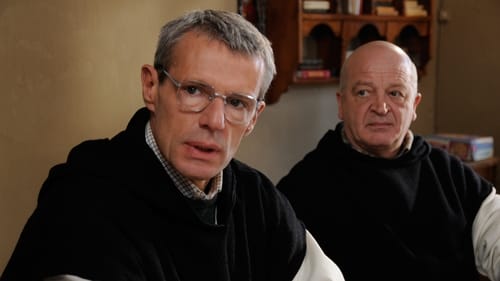
Em um mosteiro encravado nas montanhas do Norte de África, na década de 1990, oito monges franceses vivem em harmonia com seus irmãos muçulmanos. Quando uma equipe de trabalhadores estrangeiros é massacrada por um grupo islâmico, o terror instaura-se na região. - Ganhou o Grande Prêmio do Festival do Cannes em 2010. - Ganhou o Prêmio do Júri Ecumênico no Festival de Cannes 2010.

A história do oficial Max Vatan que, em 1942, no Norte de África, encontra Marianne Beausejour, da Resistência Francesa, numa missão mortal atrás das linhas inimigas. De novo juntos, em Londres, a sua relação é ameaçada por pressões extremas da Guerra.
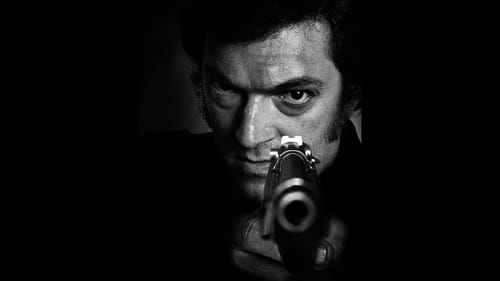
Jacques Mesrine foi um lendário gângster francês que entre 1960 e 1970 tornou-se o inimigo público da França. Também conhecido como "O Homem de Mil Caras", era famoso por sua coragem e suas muitas fugas da prisão.
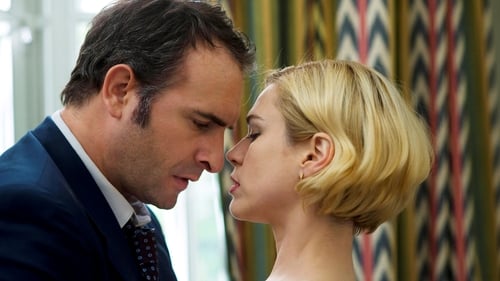
Happily married with a daughter, Marc is a successful real estate agent in Aix-en-Provence. One day, he has an appointment with a woman to view a traditional country house. A few hours later, Marc finally puts a name to her face. It's Cathy, the girl he was in love with growing up in Oran, Algeria, in the last days of the French colonial regime. Marc hurries to her hotel. They spend the night together. Then she's gone again. And Marc's mother tells him Cathy never left Algeria. She was killed with her father in a bombing just before independence...
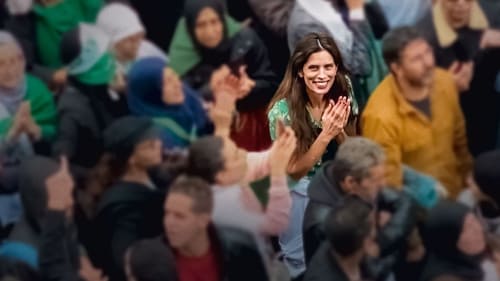
Neige, divorciada e mãe de três crianças, visita regularmente Emir, seu avô argelino, que vive agora em um asilo para idosos. Ela adora e admira seu papel de alicerce da família, e como o homem que a criou e sobretudo a protegeu da atmosfera tóxica que marcava seu relacionamento com os pais. As relações entre os muitos parentes se complicam quando Emir morre, desencadeando uma tempestade familiar e uma profunda crise de identidade em Neige.
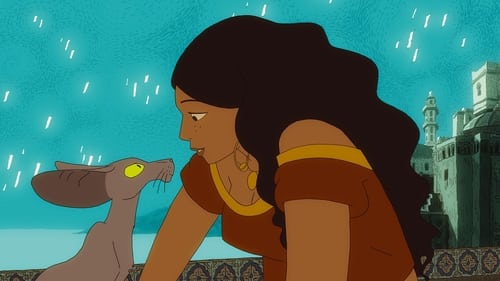
Argélia, 1920. Um rabino e sua filha têm um gato mimado. Um dia, o animal come um papagaio e começa a falar. Ele acaba se revelando mentiroso, imprudente e reflexivo. Além disso, insistirá em se tornar judeu, com direito a bar-mitzvah.
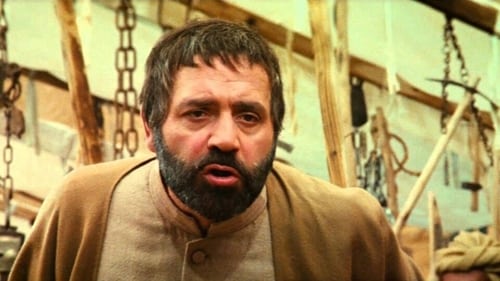
In antique Rome, a simple pepboy for chars becomes involved in a coup against Cesar. Rahatlocum is a North African Roman colony where Julius Caesar came to spend an expensive holiday. The revolt rumbles among the small people who find a leader in the person of Ben-Hur Marcel.
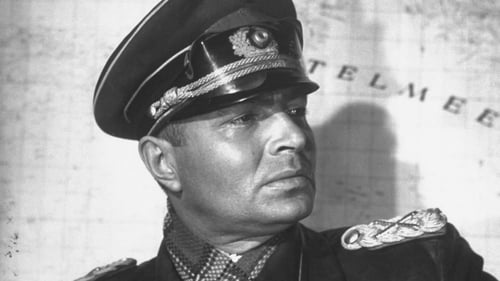
O marechal Rommel, especialista de Hitler em táticas militares na Segunda Guerra Mundial, era conhecido como a Raposa do Deserto. Respeitado por seguidores e adversários, ao ver que Hitler estava levando a Alemanha à destruição, uniu-se a conspiradores para depor o Fürher.
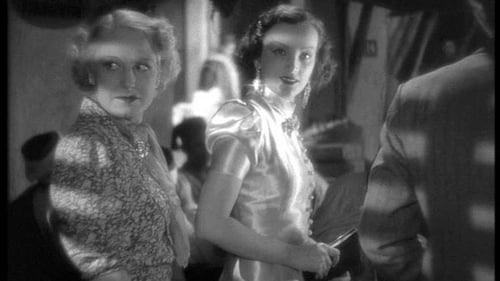
Pépé é um gangster de Paris que se esconde na Argélia. Após dois anos se escondendo, começa a sentir falta de sua liberdade, mesmo com poderes. Ao conhecer Gaby, sua vontade de voltar só aumenta, mas se voltar pode ser pego pelo detetive Slimane.
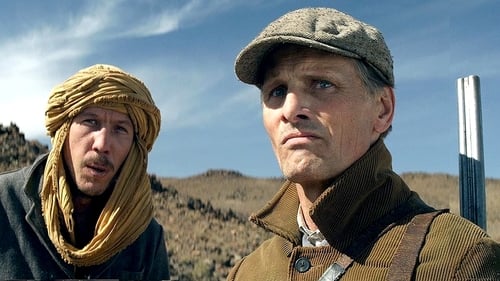
Durante a Guerra da Argélia, em 1954, o professor Daru (Viggo Mortensen) fora recrutado para lutar pelo exército francês. Ele nasceu na Argélia, mas é de família espanhola. Sua identidade e nacionalidade são questionadas por argelinos e também por franceses. Daru não concorda com a guerra e se sente totalmente deslocado. A polícia questiona sua lealdade , acreditando que ele pode ser um traidor disfarçado.
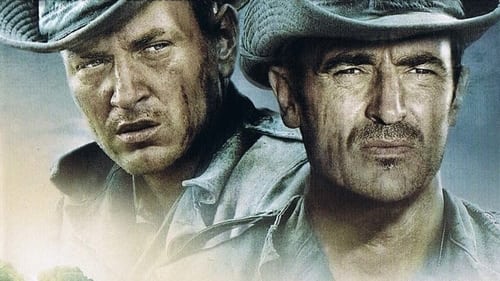
No ano de 1954, foi criada a força civil Frente de Libertação Nacional para libertar a Argélia, então colônia francesa há 130 anos. Em resposta às resoluções da FNL, para negociar a independência, a França enviou 500 mil jovens recrutas para lutarem. Em 1959 dentro do proprio ambiente militar, a tendência à loucura e ao mal se expresava neste período obscuro. Ali, franceses tornaram-se torturadores, não importando se eram crianças, adultos ou idosos, deixando de lado seus valores humanos e, muitas vezes, esquecedo de quem eram. Um dos soldados, chamado pelos companheiros de tenente substituto, começa a se questionar até que ponto esta guerra é realmente justa.
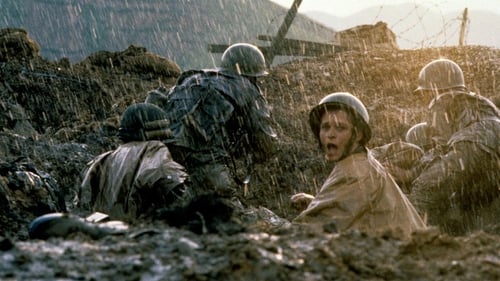
Vietnam, 1954. An American reporter finds himself in the middle of the battle of Điện Biên Phủ, between the French army and the Vietminh.
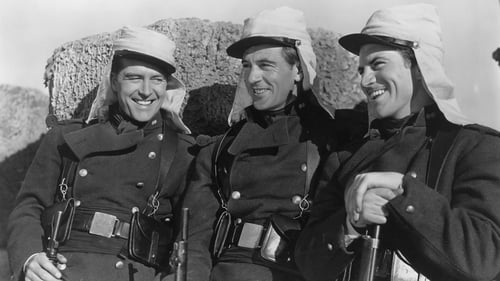
Michael "Beau" Geste deixa a Inglaterra depois de acontecimentos que o deixaram frustrado, e se junta a infame Legião Estrangeira Francesa. Lá, ele se reúne com seus dois irmãos no norte da África, onde enfrentam mais perigo com seu comandante sádico do que com os árabes rebeldes.
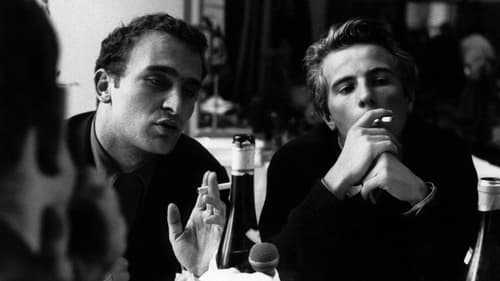
Paris, Verão de 1960. O antropólogo e cineasta Jean Rouch, assim como o sociólogo e crítico de cinema Edgar Morin, ambos ajudados por Marceline e Nadine, perambulam pelas ruas lotadas perguntando às pessoas comuns como elas lidam com as desgraças da vida. Você está feliz? Mas o seu verdadeiro objectivo é descobrir se as pessoas podem dizer a verdade diante de uma câmara e como reagem quando lhes é pedido que analisem o significado das suas respostas.
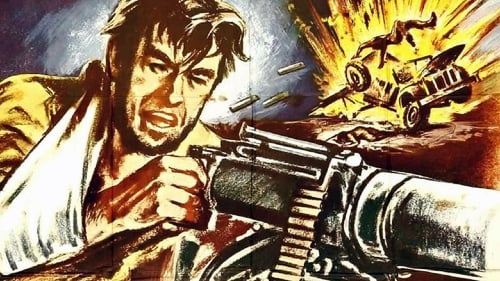
A small British army team is sent deep behind enemy lines to destroy a German petrol dump as part of the preparation for a major attack in the North African campaign. Sea of Sand was distributed in the US in a shortened version, Desert Patrol.
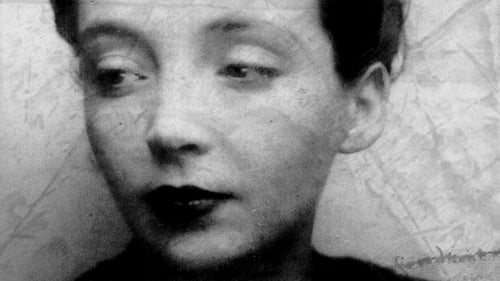
When French writer Marguerite Duras (1914-96) published her novel The Sea Wall in 1950, she came very close to winning the prestigious Prix Goncourt. Meanwhile, in Indochina, France was suffering its first military defeats in its war against the Việt Minh, the rebel movement for independence.
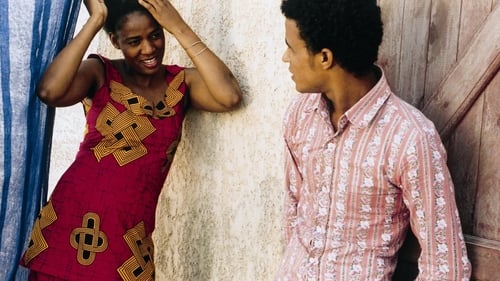
Before immigrating to the West, Abdallah travels to the coastal city of Nouadhibou, Mauritania, to visit his mother. Although he grew up there, Abdallah feels anything but at home in his old neighborhood: He can no longer speak the local dialect, and he wears western clothes that immediately cast him as an outsider. But, as Abdallah spends time with a young boy and an elderly electrician, he can't help but feel a sense of loss for the life he's abandoning
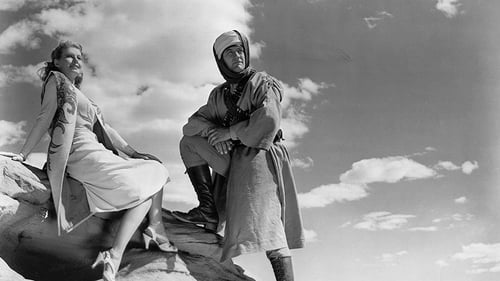
Paul Hudson, leads a group of desert bandits against some Nazis, who want to use them as cheap labor for their railroad.

Johan van der Keuken's first film is a uniquely beautiful portrait of Paris at dawn.
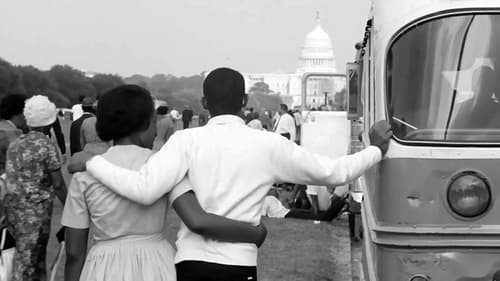
The March, also known as The March to Washington, is a 1964 documentary film by James Blue about the 1963 civil rights March on Washington. It was made for the Motion Picture Service unit of the United States Information Agency for use outside the United States – the 1948 Smith-Mundt Act prevented USIA films from being shown domestically without a special act of Congress. In 1990 Congress authorized these films to be shown in the U.S. twelve years after their initial release. In 2008, the film was selected for preservation in the United States National Film Registry by the Library of Congress as being "culturally, historically, or aesthetically significant". (Wikipedia)
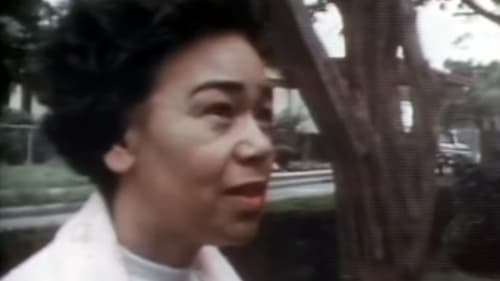
Originally founded as Freedman’s Town after the Civil War, The Fourth Ward is one of the oldest and most culturally significant black communities in Houston, Texas. In the 1970s, the city along with big business interests planned to redevelop the Fourth Ward in order to revitalize the dilapidated real estate and freshen the image of downtown Houston. The price of progress in this case would be the removal of many poor black families. The film explores a complex series of encounters with elected city officials, businessmen and the people of Fourth Ward in order to better understand how a city like Houston works. Who makes the decisions about where resources are spent and so determines the growth and wealth of the community.
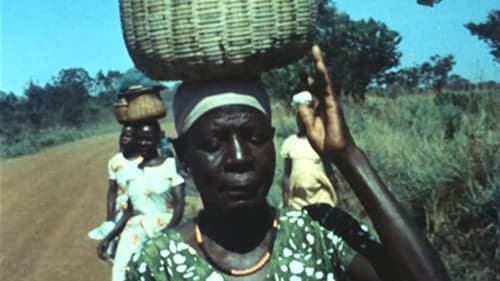
Made for the United States Information Agency (USIA). Shot all over the globe.
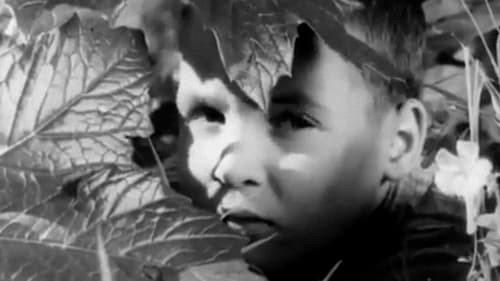
A sublime documentary on childhood and bereavement that’s one of several shorts the filmmaker completed while working in Algeria for Georges Derocles’s company Les Studios Africa, for whom he would shortly make his breakthrough feature The Olive Trees of Justice.

"Clio Capers" is a short film about the Clio Club, the Latin club James Blue belonged to at Jefferson High School in Portland, Oregon. The film features "Jupiter" and his fellow immortals atop Mt. Olympus looking back through the "Clio scrapbook," actual home movie footage James Blue shot of club activities between 1946-1948. Originally shot on 8mm film. No sound.


"La Vie au Bout des Doigts" is a documentary film by Jean-Paul Janssen released in 1982, directing Patrick Edlinger totally living his passion, climbing, which he practices here solo ("with bare hands"), it that is, without a rope or any kind of insurance. The film begins with a session of solo sea crossings on the Piade site near Toulon. In the second part, Patrick Edlinger trains in Buoux before carving a solo route in this now famous climbing site. This mythical film in more than one way is considered the first climbing film, that is to say where climbing is an activity in itself and not a means of preparing for mountaineering. His media success was such that he propelled Patrick Edlinger to the rank of world star, and above all he made climbing known to the general public, and was even nominated for the César for best documentary short film.

La Cordée de Rêve traces the great alpine journey made from August 2000 to February 2001 by Patrick Berhault. His great crossing of the Alps, here told to his daughter, will be done sometimes alone, sometimes surrounded by friends: Patrick Gabarrou, Patrick Edlinger, Ottavio Fassini, Gaël Bouquet des Chaux, Valérie Aumage, Philippe Magnin. During this alpine trip he will find his brother-in-arms Patrick Edlinger for the dolimitic part and will also see the genesis of the "Cordée Magique Berhault/Magnin". For 167 days, in sneakers in the fall, on touring skis in the winter, Patrick Berhault chained 2 to 3 stages of an average hiker daily, swallowing 1,500 to 2,000 meters of vertical drop and up to 45 kilometers per day. , and climbed 22 peaks. It's called that: "La Grande Cordée" but behind this title lies an exceptional human and sporting performance.
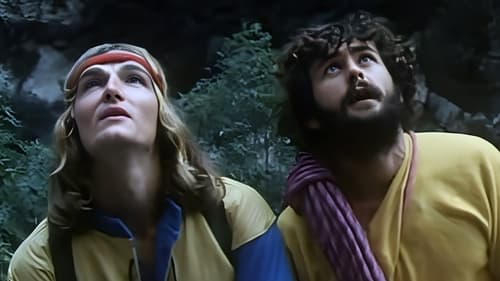

Metamorphosis is a real ballet dance on the rocks, interpreted by a great climber, Patrick Berhault, and set in the picturesque countryside of Cote d'Azur and the Lingurian coast. Berhault's evolutions, in the sea, in the grottoes, on the rocks and precipices, are exceedingly difficult but they are chiefly performed to give the movement an aesthetic value. Matemorphosis is the story of a cycle without words, narrated with gestures and music. The climber Monique Dalmasso also partecipates in the film.


























